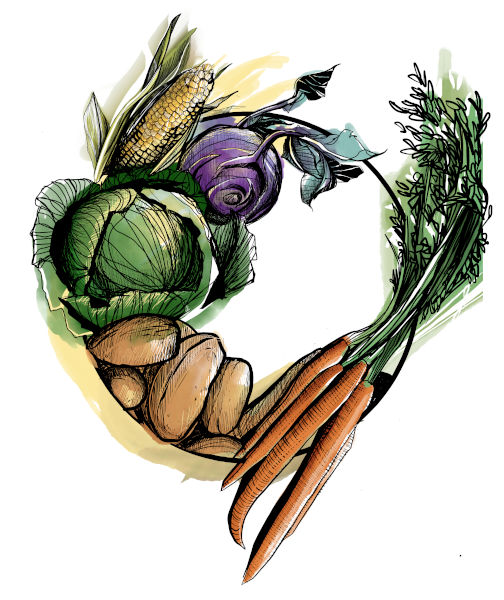Together against Tönnies....
Stop importing animal feed - climate justice instead of neocolonialism
The animal industry is based on neo-colonial injustice: large corporations profit from the destruction of rainforests, savannahs and other ecosystems in the global South. People living there are displaced and disenfranchised in order to use the land for animal husbandry and feed production. Every day, vast quantities of soya are imported from South and Central America for the German animal industry. These neo-colonial structures must finally be overcome: As a first step, we therefore demand an immediate ban on the import of all animal feed for the livestock industry.
Tönnies must pay - compensation instead of profits
Tönnies enriches itself by exploiting people, animals and the environment. The animal industry causes massive human rights violations, immense environmental damage and tramples on workers’ rights. We say: The profits of the Tönnies family at the expense of others must finally come to an end! Tönnies must pay! The company’s assets must be used to transform the food system. Compensation and reparation for the many damages caused by the animal industry are the least we expect!
Socialisation and conversion of the Tönnies Group to plant-based food production - democratisation instead of capitalism
The destruction of our natural resources by the animal industry is based not least on the capitalist principle of producing goods for profit. We therefore demand the socialisation and restructuring of the Tönnies Group! It is not individual multi-billionaires but we consumers and the people who produce the food who should decide what is produced and how it is produced. Only if the basic areas of life are placed under social control can they also serve the common good and sustainable and fair food production beyond capitalism become possible.
....and together against the animal industry
Exiting from the animal industry can no longer be postponed. In March 2021, we published our study The exit from the animal industry can no longer be postponed. In March 2021, we published our study „Milliarden für die Tierindustrie – Wie der Staat öffentliche Gelder in eine zerstörerische Branche leitet“ (“Billions for the animal industry – How the state channels public money into a destructive industry”). As part of the study, we developed the following demands:
Clear targets for the drastic reduction of livestock numbers with concrete milestones for implementation
Livestock units must no longer be expanded or newly built. With the help of suitable measures, the reduction of at least 80 percent of the current stocks by 2030 must be organized in a socially just manner. In view of the dramatic effects of the livestock industry, time is pressing and a reduction of around ten percent per year is doable in a socially just way.bis 2030 auf sozial gerechte Weise organisiert werden. In Anbetracht der dramatischen Auswirkungen der Tierindustrie drängt die Zeit und ein Abbau von etwa zehn Prozent pro Jahr ist sozial gerecht machbar.
Good alternatives for employees
Good alternatives must be created for those working in animal husbandry and slaughterhouses. The Netherlands is currently demonstrating on a small scale what exit programs for livestock farmers can look like. There is also great interest in such programs among pig farmers in Germany.
In any case, all employees must be involved in the design of the exit programs. Viable concepts are also needed for regions that have been heavily dependent on the livestock industry to date. In order to organize the rapid exit from the livestock industry in a fair manner, we call in particular for the large corporations to be socialized and converted into plant-processing companies under the self-management of the workers – especially with a clear perspective for migrant workers.
Support for ecological and solidarity-based cultivation projects
The billions of euros that are currently still being spent on livestock farming must instead be spent on comprehensive support programs for the organic cultivation of cereals, vegetables, pulses and nuts, among other things. Special support should be given to self-managed and solidarity-based farming as well as projects that focus on needs rather than profits, connect producers and consumers and promote a regional and fair food supply. As part of the transformation, a comprehensive land reform is also needed so that land previously used for the livestock industry is also available for socially just and ecological cultivation projects.
Promoting climate protection and biodiversity
Areas freed up by the dismantling of the livestock industry must be converted into intact ecosystems with high biodiversity and for the storage of greenhouse gases. In particular, peatlands must be rewetted and forests (re)afforested to protect the climate. In many places, valuable ecosystems with diverse vegetation can be created in the form of flowering meadows, for example. The establishment and maintenance of protected areas must be seen as a community task that is adequately remunerated and also offers an attractive source of income for farmers.
Food system transition
To be effective, the exit from the animal industry requires a drastic change in consumption patterns: The consumption of meat, milk and eggs must fall rapidly by 2030. To achieve this, comprehensive education campaigns are needed, particularly about the consequences of the animal industry. Public institutions must redesign their canteens in a participatory way, i.e. with the involvement of their users. Measures that run counter to the agricultural and food transition, such as advertising campaigns for animal products, must be discontinued. In addition, we call for the gradual democratization and decommercialization of food distribution and the expansion of solidarity-based communal catering.
Future-oriented research and teaching
Public funds that currently flow into research in the interests of animal husbandry must be redirected to research into sustainable agricultural practices and concepts such as organic plant cultivation, agroecology, eco-vegan agriculture, etc. Corresponding training places and study courses must be established and promoted to replace the current offerings.
The demands described here can be implemented realistically and promptly as a first step towards a socially just and ecological agricultural and food transition. This must be understood as part of a comprehensive system change towards a solidary and ecological mode of production and organization that does not operate at the expense of other sentient individuals and is not profit-oriented.

